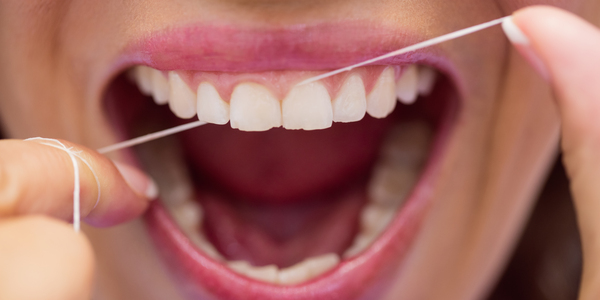[the_ad id=”6076″]
When it comes to maintaining good oral hygiene, brushing your teeth is just one part of the equation. Dental professionals universally recommend incorporating flossing into your daily routine to ensure optimal dental health. Despite its importance, many people overlook the benefits of dental flossing or neglect it altogether. In this article, we’ll delve into why saying yes to dental floss is crucial for keeping your teeth and gums healthy.
Prevents Plaque Buildup
Dental flossing is instrumental in removing plaque and food particles from between your teeth and along the gumline. Plaque is a sticky film of bacteria that forms on the teeth and can lead to tooth decay and gum disease, if not properly removed. Flossing helps disrupt plaque formation in areas that a toothbrush cannot reach, preventing the buildup of harmful bacteria and maintaining oral health.
Reduces Risk of Gum Disease
Gum disease, also known as periodontal disease, is a common dental problem characterized by inflammation of the gums and damage to the surrounding tissues. Regular flossing helps remove plaque and bacteria from the gumline, reducing the risk of gum disease and its associated complications, such as gum recession, tooth loss, and bone damage. By keeping your gums healthy through consistent flossing, you can protect your overall dental health and avoid serious oral health issues down the line.
Prevents Bad Breath
One of the most noticeable benefits of dental flossing is its ability to combat bad breath. Food particles and bacteria trapped between the teeth can contribute to foul-smelling breath. Flossing removes these particles and bacteria, effectively freshening your breath and promoting better oral hygiene. Incorporating flossing into your daily routine can help you maintain a confident and pleasant smile.
Enhances Effectiveness of Brushing
While brushing your teeth is essential for removing plaque and debris from the tooth surfaces, it alone may not be sufficient for thorough oral hygiene. Flossing complements brushing by reaching areas that a toothbrush cannot access, such as the tight spaces between teeth and under the gumline. By flossing before or after brushing, you can ensure a more comprehensive clean and maximize the effectiveness of your oral care routine.
Promotes Overall Health
Maintaining good oral hygiene through practices like flossing is not only beneficial for your teeth and gums but also for your overall health. Poor oral health has been linked to various systemic conditions, including heart disease, diabetes, respiratory infections, and adverse pregnancy outcomes. By taking care of your teeth and gums through regular flossing and dental care, you can reduce the risk of developing these health issues and promote your overall well-being.
Conclusion
Incorporating dental flossing into your daily routine is a simple yet effective way to maintain optimal oral health and prevent dental problems. By removing plaque, reducing the risk of gum disease, combating bad breath, enhancing the effectiveness of brushing, and promoting overall health, dental flossing offers numerous benefits for your teeth, gums, and general well-being. Make saying yes to dental floss a priority in your oral care regimen and reap the rewards of a healthy and beautiful smile for years to come.

